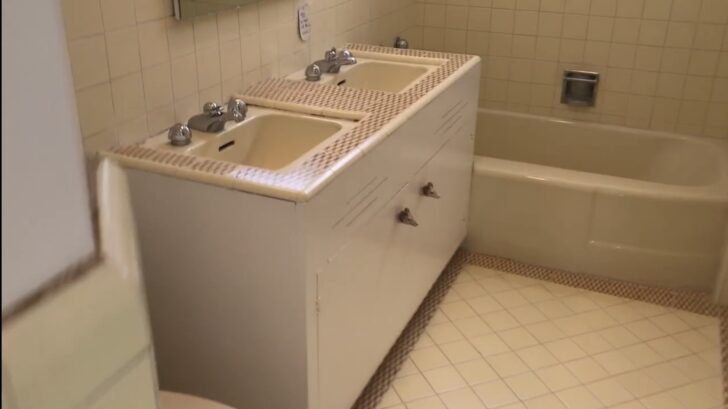During the global financial crisis in 2008 – 2009, I expected the San Francisco Property Assessor Office to automatically lower my property tax bill. After all, home prices had topped out at the end of 2006 and had declined about 5% a year for three consecutive years.
Instead of receiving a property tax bill reduction, the city increased my assessed value, thereby increasing my property tax bill! The city did the same for thousands of other homeowners as well, essentially robbing us of our hard-earned money.
As millions of people were losing their jobs and seeing their net worths get crushed, San Francisco didn’t seem to care. It wanted its money, regardless of the economic circumstance. The same happened with millions of other homeowners in other cities across the country.
During the financial crisis, I ended up spending hours of my time fighting my property tax bill. I was rejected the first year, but won my case for three subsequent years. It was a maddening process to have to fight against such an obvious wrong.
The government expects its denizens to meekly accept all punishments and like them too. There was no way I wasn’t going to stand up against tyranny and a department known for its corruption.
Sadly, you can’t trust the property assesor’s office to do the right thing in a recession. Your city will crave even more property taxes from you during difficult times. As a result, homeowners should be proactive and protect themselves from unfair property tax hikes.
Tax-Paying Citizens Are Often At A Disadvantage
San Francisco not doing the right thing during an economic crisis was my rude awakening to the principle of not relying on the government for anything. It also motivates me to minimize my tax liability as much as possible. The situation also made me question whether working 60 hours a week was worth it given the income tax consequences. Ultimately, I decided no and helped kickstart the FIRE movement in 2009 and ultimately retiring in 2012 partially to pay less taxes.
You can rationally argue your case with any reasonable person or institution. But when it comes to arguing against the omnipotent government about why your property taxes should be lower, you are always at a disadvantage. A larger government with a big budget also creates tremendous inefficiencies.
The best example of the government’s “heads I win, tails you lose” power can be found in our system for filing taxes.
Government’s Heads I Win, Tails You Lose Policy
Government: You owe us money. It’s called taxes.
Me: How much do I owe?
Gov’t: You have to figure that out.
Me: I just pay what I want?
Gov’t: Oh, no we know exactly how much you owe. But you have to guess that number too.
Me: What if I get it wrong?
Gov’t: You go to prison
OK, you don’t usually go to prison for filing your taxes incorrectly. You simply pay a penalty plus interest. But you get the point.
Ironically, if you are an average income tax-paying citizen, you are often more vulnerable to paying taxes than the very rich who have the resources to legally avoid paying taxes.
You’re also at a disadvantage when compared against the ~50% of Americans who pay no income taxes at all. After all, if you have been steadily paying your taxes, this is a clear signal to the government to keep squeezing you like a humungous zit.
Reduce Your Property Tax Bill By Downgrading Your Property Statistics On Redfin And Zillow
If you feel your property assessor office won’t automatically do the right thing and is corrupt, consider downgrading your property statistics on Redfin, Zillow, and other online property estimate sites. Your goal should be to make your home look as crappy as possible.
Over the decades,I have battled many property assessors. Every single one of them have looked up my property online to see its number of bedrooms, bathrooms, landscaping, and upgrades. The property assessor also used Google Maps to get a top-down satellite view of my property.
Given you can’t rely on the property assessor to lower your property tax bill automatically during a downturn, your mission is to proactively protect yourself by downgrading your property statistics as follows:
- Decrease the number of bedrooms you have to a still believable number. For example, if you have a five-bedroom house, decrease it to two bedrooms. Decreasing your bedroom count to one bedroom will look like an error.
- Decrease your number of bathrooms to no more than one bathroom for every two or three bedrooms. You can turn a full bathroom into a half or quarter bathroom as well.
- Decrease the livable square footage and the lot size. Cutting your livable square footage by half is a realistic amount.
- Block your home’s street view from Google Maps and Apple Maps. Here’s an article on how to do so. By doing so, someone from the property assessor’s office will have to drive out to your home to check it out. And they usually will not.
- Remove all pictures or add old rundown pictures of your home online. This tactic is excellent for Stealth Wealth and may reduce the temptation for robbers to break into your home. Now that’s a very valuable benefit!
Don’t Let Your Ego Make Your Home Beautiful Online
When I was young and naive, after every home purchase or gut remodel, I would go online and update my home’s statistics. If I added a new bedroom, bathroom, living room, and laundry room, I would stupidly upload pictures of the remodel. Then I would add the additional livable square feet.
Why? Because I was proud of my work and wanted to show off! But being proud and showing off only results in more reasons for the property assessor’s office to raise my property taxes! When it comes time for them to raise your property taxes after remodeling with a permit, you can really screw yourself.
Hence, after every remodel, I now downgrade my property statistics and pictures to make it look old. In fact, I successfully lowered the value of one rental property by about $1 million to better protect it against property tax increases!
When it comes to saving money on property taxes, crush your ego. I know you might want your friends and family members to see what a nice house you live in. But making your house Instagramable may just invite envy along with a higher property tax bill.
Instead, here’s a more appropriate picture of what the interior of your home should look like if you insist on posting pictures online. Just like how police officers ticket expensive sports cars more, it’s best to drive a beater if you don’t want unwanted attention.
No Guarantees Of A Lower Property Tax Bill
Obviously, the people who work at the property assessor’s office aren’t stupid. They have historical records of your property to compare with in case the online statistics look off. Further, if there was ever a permit filed for a remodel, updated information about square footage and the number of rooms will likely be recorded.
That said, you don’t want to arm the property assessor with more ammunition to hike your property taxes in a recession by making your home look amazing online. Each time I appealed my property taxes, I was required to submit comparable properties and details about their size, condition, and more.
Know the property assessor does not have the right to enter your property and inspect it. Further, you also have every right to protect your privacy by scrubbing your online data. Zillow, Redfin, and other websites aren’t the authority on deciding what your property’s value is.
Related post: Even Zillow Can’t Trust Its Own Estimates
Property Condition Is Subjective
During the pandemic, I appealed one of my rental property tax bills and lost. Even though I had purchased the property price for X, the assessor assessed my property’s value at X plus $100,000!
Their reasoning was that I had purchased the price below market value. But by definition, market value is whatever someone is willing to pay at the time! What a racket.
Check out this pictures I submitted to demonstrate the old condition of the property when I purchased it. Although the bathroom is from the 1940s, the assessor kept arguing the bathroom looked new and great! Come on now. On top of the right side faucet there’s even a note saying “Do not use, broken.”

The Haunted House Look
If you want to take lowering your property taxes a step further, you may also want to make the front of your house look like a horror show.
One homeowner in my neighborhood has left the front of his home looking like a haunted house since 2008. The house’s paint is all cracked and chipped. Two windows are cracked and covered with what looks like blankets. Even the gutters are all rusted and broken.
But one day, its neighbor hosted an open house. From the neighbor’s house, I could see the back of the haunted house had been fully remodeled with nice landscaping. But all the remodeling was invisible from the street. Such a brilliant way to scare off robbers and keep its property tax bill down!
Know that even if home prices decline over the next three years, the property assessor office likely won’t do the right thing and automatically lower your property tax bill. Instead, the assessor office will keep raising property tax bills and count on the vast majority of homeowners to not protest.

Downgrade Your Property Statistics Online On Zillow And Redfin
For those willing to fight, the city will make the appeal process cumbersome. You will also most certainly have to pay a fee to appeal. The city does this on purpose to discourage homeowners from trying.
In an economic downturn, tax receipts go down. Hence, city politicians are incentivized to raise your taxes to make up for a revenue shortfall. More money keeps the party going for politicians with protected incomes. Please beware of this sad fact.
Just like how showing off on social media isn’t a wise move, showing off your home online isn’t either. Suppress your ego. Make your property look as bad as possible if you want to save money on property taxes.
If you are raising young children at home, having a crappy looking property may also protect you from robbers. If you are a thief, you Will want to target expensive looking homes with hopefully expensive things inside. For example, one $50 million home I know has over $200 million of artwork on the walls!
And when you’ve finally had enough of dealing with an unfair property assessor, then you can easily move onto investing in real estate 100% passively.
Paying $100,000 a year in property taxes is my limit. Today, I gladly invest in private real estate funds so I don’t have to deal with any shenanigans any longer.
Reader Questions And Recommendations
Readers, have you downgraded your property statistics online to make your home look cheaper than it really is? Why do you think the government refuses to do the right thing and automatically lower a homeowner’s property tax bill when prices decline? Do you feel you have a right to protect your privacy online?
If you’re looking to surgically invest in real estate, take a look at Fundrise. Fundrise is a vertically integrated real estate platform that invests predominantly in Sunbelt single-family properties. Private real estate is a good way to diversify and earn income 100% passively. You won’t have to write property tax checks every year either!
I’ve personally invested $954,000 in the space and six figures into Fundrise. Fundrise is also a sponsor of Financial Samurai.
If you would like an unfair competitive advantage in building wealth, pick up a hard copy of my instant WSJ bestseller, Buy This, Not That. The book goes deep into real estate investing strategies.
For more nuanced personal finance content, join 60,000+ others and sign up for the free Financial Samurai newsletter. Financial Samurai is one of the largest independently-owned personal finance sites that started in 2009.
For more nuanced personal finance content, join 60,000+ others and sign up for the free Financial Samurai newsletter. Financial Samurai is one of the largest independently-owned personal finance sites that started in 2009.
Read the full article here

















